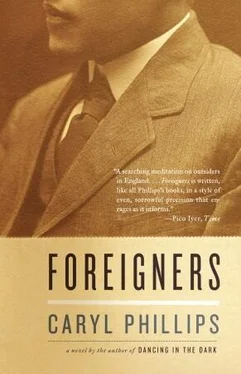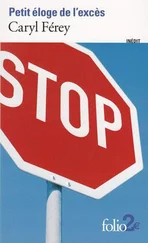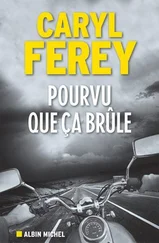As far as I remember he just called at the hostel and asked for accommodation. [Between 17 April and 4 July, 1968] I do not think he was sent there by any social-work organisation. . He did not mix with the other men in the hostel and he had no friends that I knew of. As far as I can remember he left the hostel of his own accord. About May, 1969, nearly a year later, the police. . asked me to identify a body that they had found in the River Aire. I was unable to make a positive identification as the face was badly distorted. As far as I know, Oluwale never attacked anybody in the hostel and certainly never attacked my wife. He did ask my wife to live with him in a room away from the hostel, but she told him not to be stupid and ignored his remark. I never spoke to Oluwale about the suggestion he made to my wife. The type of man we usually get in the hostels are capable of making such suggestions and my wife and I have learned to ignore them.
Raymond Bradbury, officer in charge of Church Army Hostel, 53 The Calls, Leeds
I heard the word on the street that David had drowned. I knew that he had been systematically badly treated by the police over a number of years, but I didn't put two and two together even though I was still running the Chapeltown Commonwealth Citizens Committee. Then, over a year after we lost David, Austin Haywood, who was the new chief constable, took me into his office and said that two of his officers were going to be charged and tried for manslaughter. I nearly fell over, but in my heart I knew that it made some kind of sense. It was almost unbelievable, and it produced a rising tide of anger, not just in me, but in everyone. We all felt that we should have done more, for we did know some things. However, everybody also felt that David had a right to live his life as he pleased, and that he should be able to exercise the dignity of deciding if he needed our help or not. But there was a feeling of responsibility. After all, I'd made many, many complaints against the police. In fact, over 400, but there was no getting away from the fact that it was a nightmare in this city for young black men. The police were out of control. It wasn't just a hard-core minority of people in Leeds who didn't want foreigners, it was also the police. With David's death it became obvious that if things didn't change in Leeds then David was simply going to be the first of many dead black men.
To me, David was a fighter for freedom. He was not another victim. You see, his life and death affected a whole generation. His life led to the full emergence of the Black Power movement in this city, and to black and white people finally saying 'enough'. David made it possible for a demonstration to be a thousand people, not just two or three. His death was a warning to all society, including white society. I wanted all the white institutions to wake up and realise that there was danger around them. That there was no such thing as a racist joke. If it's racist then it's not a joke. In the wake of David's death the police invited citizens in to help them with the training of the police in this sensitive area. And I became one of the teachers.
He would always hide in doorways so he was easy to find. I mean, as a young policeman, I knew little back alleyways and ginnels that he could have gone up. But he didn't do that. He just went in the doorways, which left him vulnerable. But I don't remember exactly which ones. They were down Vicar Lane as well as The Headrow. Inspector Ellerker and Sergeant Kitching had a fascination for David. He would always run away from them, and yet he would sleep in those doorways on their patch. Why? God knows. Sometimes he would go away for a while and things would calm down. We would hope, well I would hope, that he wouldn't come back. But then he would come back. Ellerker and Kitching always wanted to find him, but if I saw David I did not report that I'd seen him. This is the only good thing that I did. So I think that in some ways by always coming back he was actually just being courageous and not letting them have what they wanted. Because he never used to plead with them. He would run away but he never pleaded with them. He actually remained a problem for them. It was as if he was pushing them, you know. As if he wasn't going to let them have the satisfaction. I was inside the van when they did have a go at him. And it was terrible, it was just unbelievable. Absolutely dreadful. I was driving the van. They would look for him, and they would find him. Then they would go through the motions of arresting him. And then, when he was inside the van, they would beat him, but he kept his dignity. He never asked them to stop or pleaded with them, or anything. It was as if they were machines, and it was just a job of work. It was like that, and they would beat him. There was one occasion when it was like this, and then there were other occasions when I saw them chasing him, but I actually didn't see the business. Once they beat him with a rubber torch and the torch all fell apart. All the glass — merciless, merciless. I remember when they were hitting him they were very careful not to hit his face, because then there would be no evidence when they went into the court. They had ways of doing stuff, and the ethos of rank was very, very strong. Some of the police officers at that time had come in from the army, and they were what was known as old school. They were people who had been sergeants or privates or whatever. I can't say for definite, but I believe that Kenneth Kitching had been somebody who had come in that way. He was an older man. My experience was that a young PC could not approach a senior officer for any reason. He would only take orders, and that was the job — to take orders and not ask questions.
Personally, I didn't know what Oluwale did. I was a West Indian community leader then, as I am now, but I couldn't say that I knew him that well. However, it did create a very bad feeling in the West Indian community when we found out that he had been killed. You see, the David Oluwale that I remember was a man who used to keep himself to himself, but he was present at most of the functions that we used to have. Social dances and so on at the Astoria Ballroom. Oluwale liked dancing and he used to go to the African Hi Life dances. The music and the singing preserved us, and I think that without it we'd have been wiped out. At that time West Indians had pride in their dress and wore three-piece pinstripe suits, and Oluwale was the same. He liked to dress. But later on I remember seeing him just standing by the side of the road crying. It was very painful when we heard how he was hunted like a fox by the police. Apart from the colour angle, you just couldn't believe what you were hearing in a British courtroom. That kind of treatment of a human being was unacceptable, and the truth was it just made things go worse with the police. We used to tell them right out, if they wanted another Oluwale then they were not going to get one from us. We now knew exactly what we were dealing with when it came to the British policeman.
We heard about it at the station, obviously. And I remember at the time that when the other police officers talked about it they didn't talk about it as a tragedy. It was talked about as 'the balloon's gone up'. You know, it's out now. It was that kind of conversation. It wasn't talked about from the point of view of David Oluwale's position at all. It was just, you know, 'Oh well, we're in for trouble now' sort of thing. I'd go home. My father and mother must have seen the information about the trial on the television. In fact, I was on the television. I was there and they included remarks that Ellerker had made about me on the tele vision to try and discredit me as a witness. My mother and father would not discuss this matter with me. My father didn't want to know. He would hear nothing said against the police force. So I got no support there. My relationship with my father went back downhill, ice-cold again. I was very confused about the situation. I was feeling isolated, and I was also thinking about David's isolation. I found myself thinking a lot about what had happened to him. And since then I've had these flashbacks about that. The worst feeling of all is that the tragedy was predictable, and no one, including myself, prevented it. Obviously, I left the police force. When I went to the court I met some other officers who had left the force as well, and who'd been giving evidence. So I realised that I wasn't alone. I had a feeling of guilt then and I've got it now. We shouldn't have let it happen. I'd even thought about getting David in my car and driving him away myself. You know, doing something like that, and trying to get him away from it. But I had my own trouble with Ellerker and it was all terrible. I didn't speak to anyone about it, but I hoped that it would be a conviction for manslaughter. I didn't know what had happened on the night David died but I thought that there must have been other police officers around at the time. There wouldn't have been just the two of them, so I wondered about that. And I thought that the evidence given by witnesses to assaults on David must have been powerful, and that my own evidence must have been powerful. So I thought that manslaughter was the best we could get.
Читать дальше











![Unknown - [Carly Phillips] The Bachelor (The Chandler Brothe(Bookos.org) (1)](/books/174132/unknown-carly-phillips-the-bachelor-the-chandle-thumb.webp)
